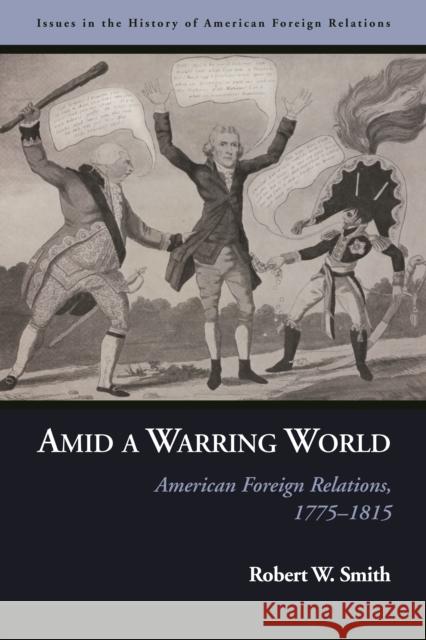Amid a Warring World: American Foreign Relations, 1775-1815 » książka
Amid a Warring World: American Foreign Relations, 1775-1815
ISBN-13: 9781597975216 / Angielski / Twarda / 2012 / 240 str.
Amid a Warring World: American Foreign Relations, 1775-1815
ISBN-13: 9781597975216 / Angielski / Twarda / 2012 / 240 str.
(netto: 233,23 VAT: 5%)
Najniższa cena z 30 dni: 241,40
ok. 30 dni roboczych.
Darmowa dostawa!
The period between 1775 and 1815 could be called the -critical period- of American foreign relations. At no time in American history was the existence of the republic in greater physical peril. Questions of foreign policy dominated American public life in a way unequalled until World War II. From the American Revolution through the War of 1812, the United States was a small power confronted by great powers hostile to each other and to the United States. Furthermore, the era was dominated by two great revolutions that reshaped the Atlantic world. The problem for American diplomats and foreign policymakers was to preserve the United States, both as an independent nation and as a republic, in a decidedly unequal contest with the great powers.
According to Robert W. Smith, the question of American power lay at the heart of the debate over independence. The radicals believed that the American spirit and market were enough, and favored rapid independence and an aggressive promotion of neutral rights. The moderates doubted American power, and were inclined to move slowly and only with assured French assistance. By the end of the American Revolution, the moderates had won the debate. But their victory masked the defects of the confederation, until the diplomatic humiliations of the 1780s forced the United States to create a government that could properly harness American economic and military power. The debate over the power of the United States to reshape a hostile world remains as central today as in 1776.











